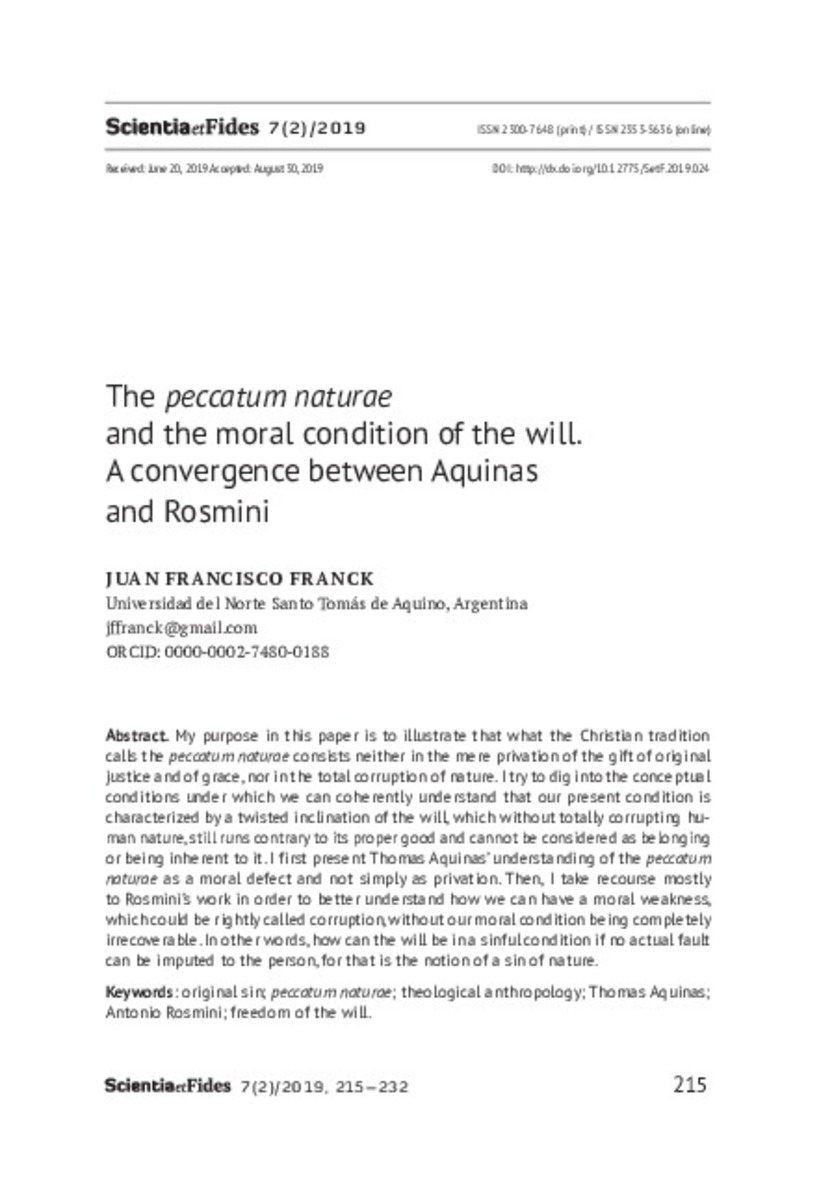The peccatum naturae and the moral condition of the will. A convergence between Aquinas and Rosmini
Keywords:
original sin
peccatum naturae
theological anthropology
Thomas Aquinas
Antonio Rosmini
freedom of the will
Publisher:
Uniwersytet Mikołaja Kopernika
Citation:
Franck, J.F. (Juan Francisco). "The peccatum naturae and the moral condition of the will. A convergence between Aquinas and Rosmini". Scientia et Fides. 7 (2), 2019, 215 - 232
Statistics and impact
0 citas en

0 citas en

Items in Dadun are protected by copyright, with all rights reserved, unless otherwise indicated.







